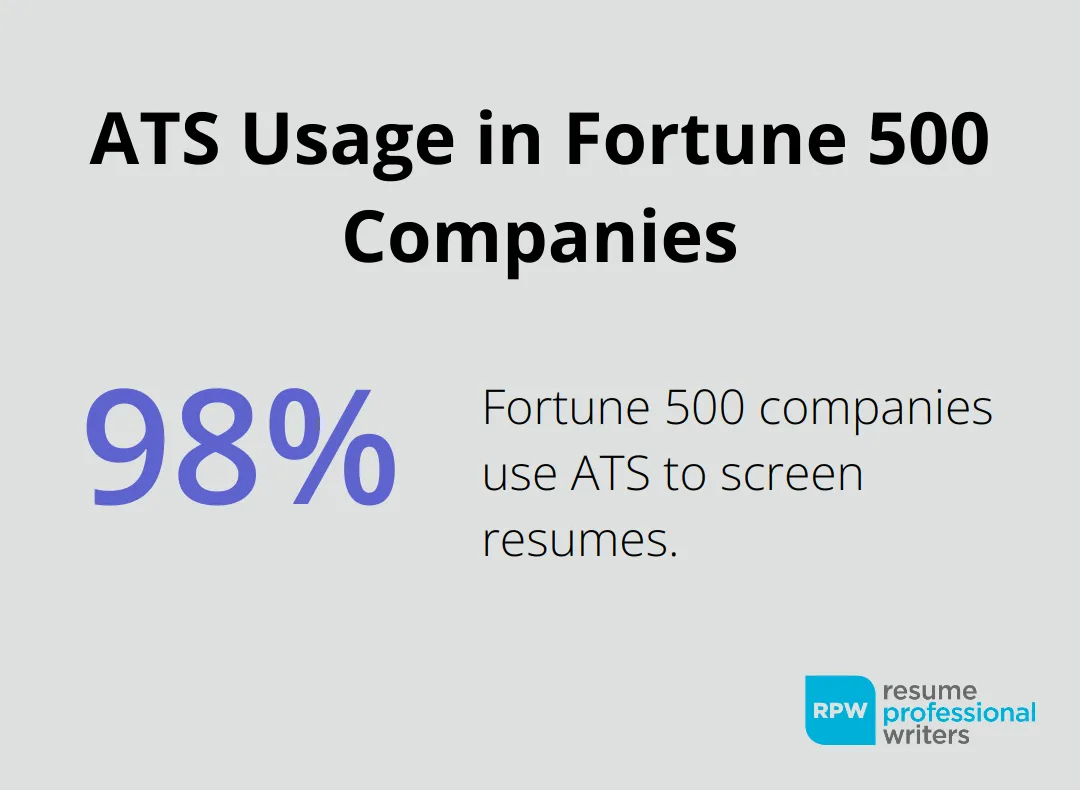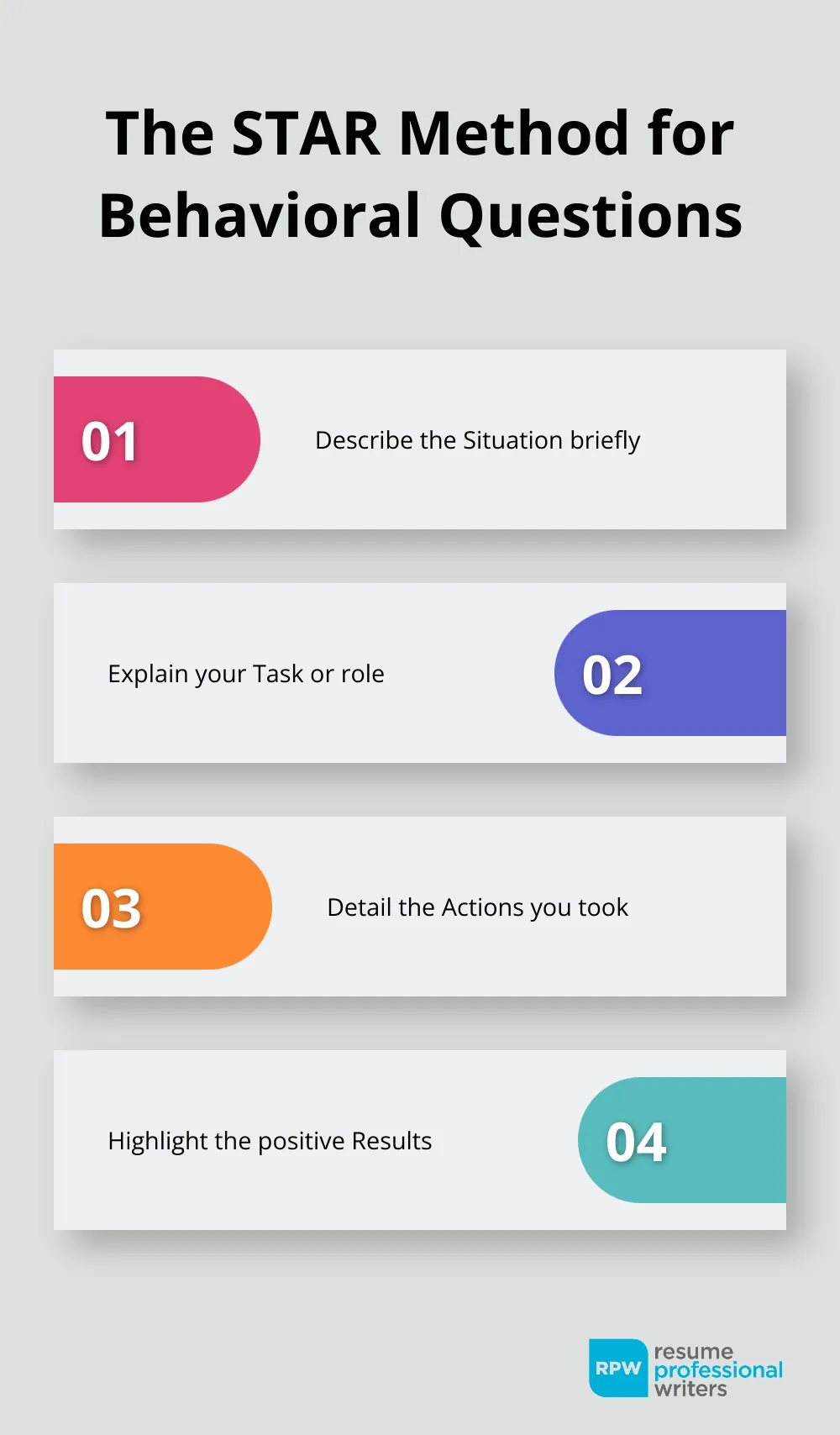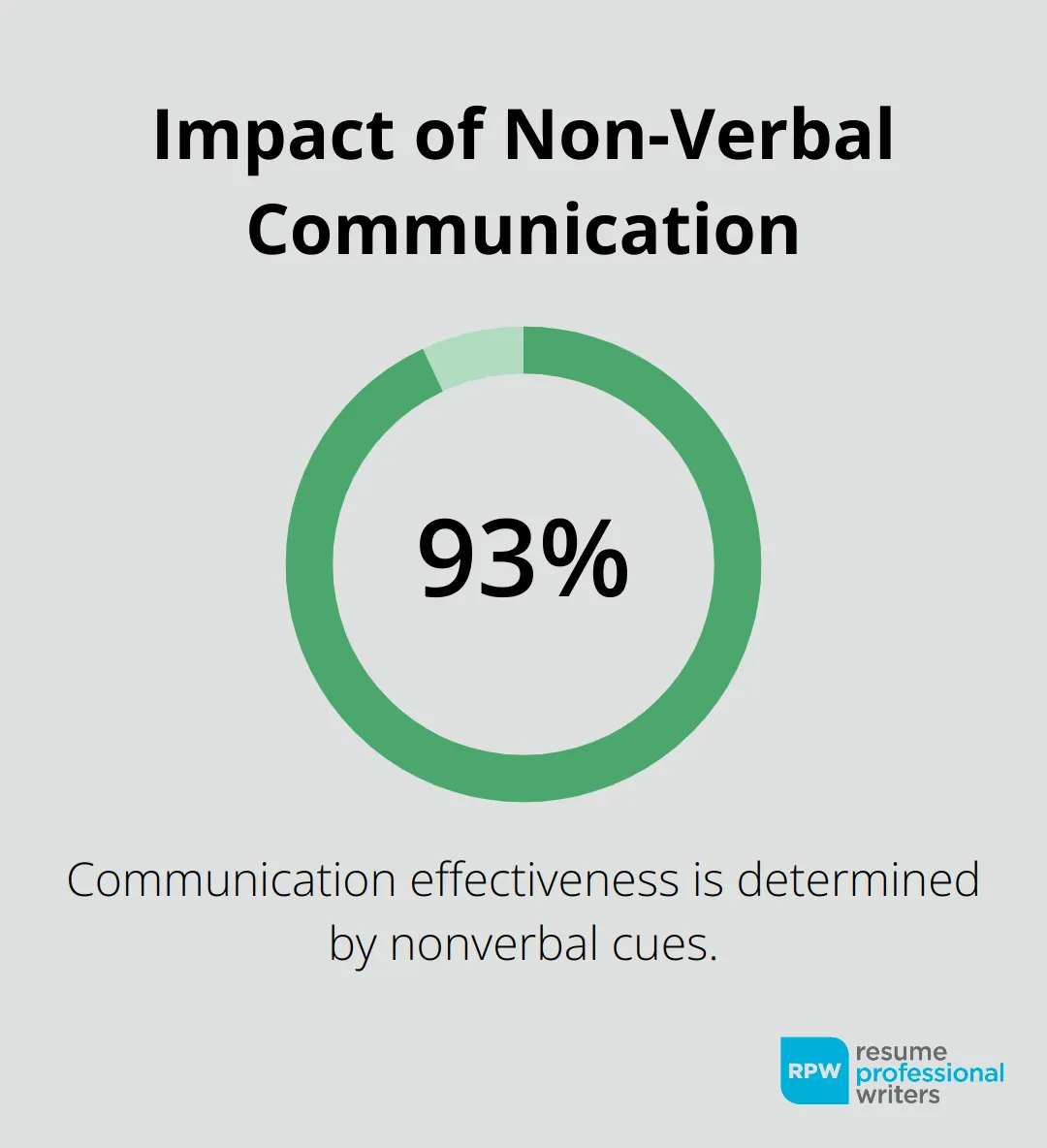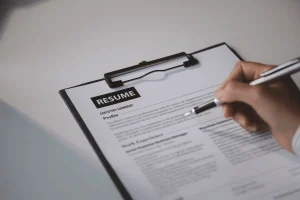Interview Preparation Techniques are key to standing out in today’s job market. Job interviews can feel stressful, but good preparation helps you feel more confident and ready for anything.
Start by researching the company and practicing answers to common questions. Work on clear communication and be ready to talk about your skills. These simple interview preparation techniques will help you give strong answers and leave a great impression.
With the right preparation, you can impress employers and get closer to your dream job.
How to Ace Your Pre-Interview Research
Thorough preparation forms the foundation of interview success. We at Resume Professional Writers have observed how well-researched candidates consistently outperform their competition. Here’s how you can conduct effective pre-interview research:
Uncover Company Intelligence
Start your research by exploring the company’s website. Focus on their mission statement, values, and recent news. Follow their social media accounts to understand their brand voice and culture. Search for recent press releases or financial reports to gauge their current market position and future goals. This knowledge will help you tailor your responses and demonstrate genuine interest during the interview.
Analyze the Job Description
Examine the job posting meticulously. Identify key skills and qualifications the employer seeks. A study by Jobscan revealed that 98% of Fortune 500 companies use Applicant Tracking Systems (ATS) to screen resumes. You increase your chances of passing both human and automated screenings when you align your responses with the job description.

Create Your Experience Narrative
Prepare specific examples that showcase your skills and experiences relevant to the position. Use the STAR method (Situation, Task, Action, Result) to structure your responses. A survey by TopInterview found that 80% of hiring managers consider storytelling skills very important in candidates. Practice articulating your experiences concisely, focusing on quantifiable achievements whenever possible.
Research Industry Trends
Stay informed about current trends and challenges in your industry. This knowledge will allow you to engage in meaningful discussions during the interview and demonstrate your passion for the field. Try to find recent industry reports or expert opinions (from reputable sources) to support your points.
Prepare Thoughtful Questions
Develop a list of insightful questions about the company and role. This shows your genuine interest and helps you assess if the position aligns with your career goals. You might ask about the company’s future plans, team dynamics, or opportunities for professional growth.
Thorough research not only prepares you for the interview but also helps you determine if the company and role align with your career aspirations. As you move forward, it’s essential to master common interview questions to showcase your preparation effectively.
Mastering Interview Questions: Strategies for Success
The STAR Method for Behavioral Questions
Behavioral questions assess your past performance in specific situations. The STAR method (Situation, Task, Action, Result) provides an effective framework for structuring your responses. A LinkedIn survey revealed that 92% of talent professionals consider soft skills equally or more important than hard skills when hiring. The STAR method helps you showcase these soft skills effectively.
To use the STAR method:

Practice this method with various scenarios from your work history to build a repertoire of compelling examples.
Addressing Strengths and Weaknesses Strategically
Questions about strengths and weaknesses are common in interviews. When discussing strengths, focus on those most relevant to the job description. Support your claims with specific examples or achievements.
For weaknesses, honesty combined with strategy is essential. Choose a genuine weakness, but frame it as an area you’re actively improving. For instance, if you struggle with public speaking, mention how you’ve joined a Toastmasters club to enhance your skills. A TopInterview study found that 100% of hiring managers appreciate candidates who can articulate their weaknesses constructively.
Crafting Impactful Questions for the Interviewer
The questions you ask can leave a lasting impression. A Glassdoor survey revealed that 88% of hiring managers say that an informed candidate who asks thoughtful questions is a top quality. Prepare at least three to five questions that demonstrate your research and genuine interest in the role and company.
Effective questions include:
- “What does success look like in this role after the first 90 days?”
- “How does this position contribute to the company’s overall goals?”
- “Can you tell me about the team I’d be working with?”
Avoid questions about salary or benefits in the initial interview unless the interviewer brings up the topic. Instead, focus on questions that show your enthusiasm for the role and your potential contribution to the company.
Handling Unexpected Questions
Interviewers sometimes ask unexpected or challenging questions to assess your ability to think on your feet. Stay calm and take a moment to gather your thoughts before responding. If you’re unsure about a question, it’s acceptable to ask for clarification.
Try to relate your answer back to your skills and experiences relevant to the job. This approach demonstrates your ability to adapt and problem-solve, which are valuable traits in any role.
As you prepare for your interview, consider how your body language and non-verbal communication can complement your verbal responses. These elements play a significant role in how you’re perceived during the interview process.
The Power of Non-Verbal Communication in Interviews
Your words matter in an interview, but your body language speaks volumes. Non-verbal cues can significantly impact your chances of landing the job. A study by UCLA found that 93% of communication effectiveness is determined by nonverbal cues. This means that how you present yourself physically can be even more important than what you say.

Master Eye Contact
Maintaining appropriate eye contact is essential during interviews. A study published in the Journal of Nonverbal Behavior found that candidates who made eye contact 60-70% of the time were perceived as more confident and trustworthy. However, constant eye contact can intimidate. Try to maintain a natural gaze, looking at the interviewer when speaking and listening, but allow for brief breaks.
Improve Your Posture
Your posture conveys confidence and engagement. Sit up straight with your shoulders back, but avoid appearing rigid. Lean slightly forward (about 10 degrees) to show interest without invading personal space. A study in the journal Psychological Science revealed that adopting “power poses” before an interview can increase confidence and performance.
Perfect Your Handshake
Despite the rise of virtual interviews, many in-person interviews still begin and end with a handshake. A firm handshake lasting 2-3 seconds conveys confidence and professionalism. A study by the University of Iowa found that interviewers were more likely to recommend candidates with a firm handshake for the job.
Avoid common handshake mistakes like the “limp fish” (too weak) or the “bone crusher” (too strong). Practice your handshake with friends or family to strike the right balance.
Control Facial Expressions and Smiling
Your facial expressions should match the tone of the conversation. A genuine smile can create a positive first impression and help build rapport. Research from Penn State University showed that smiling individuals were perceived as more likable and competent.
However, avoid forced or constant smiling, which can appear insincere. Instead, try to maintain a natural, pleasant expression that shows you’re engaged and interested in the conversation.
Manage Nervous Habits
Many people have unconscious nervous habits that can distract from their message. Common examples include fidgeting, playing with hair, or tapping feet. These behaviors can make you appear anxious or unprepared.
To combat nervous habits, practice interview scenarios with a friend or professional coach who can point out any distracting movements. Consider holding a pen or keeping your hands gently clasped to avoid fidgeting. Remember to use non-verbal cues like nodding to acknowledge understanding and maintain engagement throughout the interview.
Set Yourself Apart with the Right Interview Preparation
Interview preparation techniques are the cornerstone of job-seeking success in today’s competitive market. Focusing on company research, practicing key questions, and refining non-verbal communication can greatly improve your chances of standing out. Confidence is built through preparation—take time to polish your responses and rehearse your delivery.
Getting professional help can further elevate your readiness. Explore our expert resume writing services to ensure your application makes a lasting impression, and take advantage of targeted interview tips and coaching to develop advanced strategies for even the most challenging scenarios.
Investing in the right techniques and expert support equips you to impress interviewers and move one step closer to your dream job.








